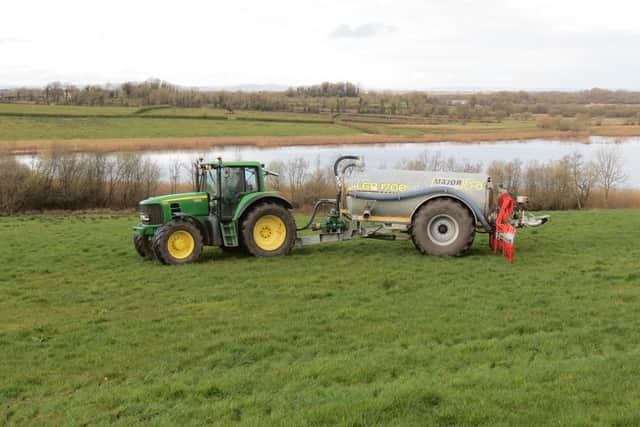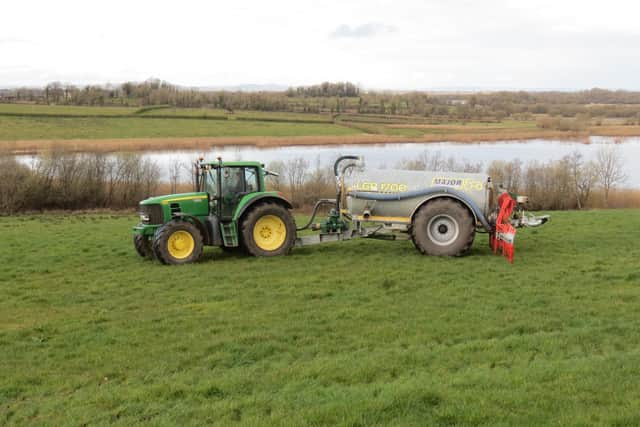Farmers urged to protect water resources when spreading slurry
and live on Freeview channel 276
NI Water asks everyone to consider carefully before spreading slurry, or other organic manures.
This is particularly important this year in light of the algae issues that have been seen in many of our lakes in the past year.
Advertisement
Advertisement
During February organic manures (including dirty water) must not be applied:


n Within 250m of a borehole used for public water supply;
n Within 50m of a borehole, spring or well;
n Within 30m of lakes;
n Within 15m of a waterway other than lakes (reduced to 5m when using LESSE);


n On waterlogged soils, flooded land or land likely to flood;
n On frozen ground or snow-covered ground;
n If heavy rain is forecast in the next 48 hours;
n On steep slopes (with an average incline of 20 per cent or more on grassland, 15 per cent or more on all other land).
Advertisement
Advertisement
Roy Taylor, NI Water Catchment Manager, said: “Care in timing and placement of slurry, manure and fertiliser is essential to minimise the potential for loss from land to water.
“If slurry is spread on poor, very wet ground or during or just before wet weather conditions, it can run off the land; this results in valuable nutrients ending up in our watercourses.
“Removing this from our water is difficult and expensive to treat in order to provide the high-quality drinking water we all expect.”
How you can help to improve water quality:
n Only spread slurry and fertilisers when conditions are suitable;
Advertisement
Advertisement
n Use the DAERA online tools to calculate your farm’s Phosphorus balance and manure Nitrogen loading;
n Check your farmyard for slurry run off and sources of pollution;
n Prevent cattle access to rivers causing erosion, sediment loss and pollution;
n Nutrient Management Planning – if available use your Soil Nutrient Health Scheme results and run off risk maps;
Advertisement
Advertisement
n Minimise Phosphorus inputs – meet P crop requirements from manures. Each tonne of concentrate feed contains approximately 5kg of P;
n Eliminate chemical P fertiliser. Save money and help the environment;
n Follow the Nutrients Action Programme to farm efficiently.